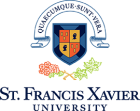Portfolio
In lieu of a traditional comprehensive exam, the Nova Scotia PhD Program in Educational Studies requires that students complete a Research/Scholarly Portfolio during their first year of study.
The Portfolio is intended as a means for students to develop and demonstrate their research and scholarly competencies. It assists them in their personal and intellectual growth.
Students assemble their portfolios in consultation with their Supervisors and Supervisory Committees. Completed portfolios contain a guiding narrative and a series of 10-15 scholarly artifacts developed during their doctoral studies that demonstrate research/scholarly competence in the following five areas:
- General Knowledge: Students must demonstrate a broad understanding of prominent social scientific and educational theoretical traditions and trends. Portfolios include artifacts that demonstrate their wide-ranging familiarity with theories related to educational studies.
- In-Depth Knowledge: Portfolios must include artifacts that demonstrate an in-depth knowledge of a range of issues in their specific doctoral focus area.
- Research Knowledge and Competencies: Portfolios must include artifacts that demonstrate research competence and the ability to engage in critical analysis of current research and methodological issues.
- Professional and Collegial Competencies: In preparation for active professional engagement, portfolios must include artifacts that demonstrate a range of professional and collegial competencies.
- Teaching and Instructional Competencies: In preparation to teach and mentor in educational/training contexts, portfolios must include artifacts that demonstrate a range of teaching and instructional competencies.
All elements of the Portfolio are initiated and completed as part of the doctoral program. Up to half of the artifacts can be selected from work completed within doctoral courses. Normally, students include two or three items from each of the five principal areas.
The Portfolio Examination
When a student has completed assembling their portfolio (normally, at the end of their first year of study and before the end of their second year), they submit their portfolio for examination. During the Comprehensive Research/Scholarly Portfolio Examination, students present their portfolio to their Supervisory Committee and an External Examiner at a public meeting. Students who succeed in passing their portfolio become Doctoral Candidates and can proceed to register to commence their PhD Dissertation.





